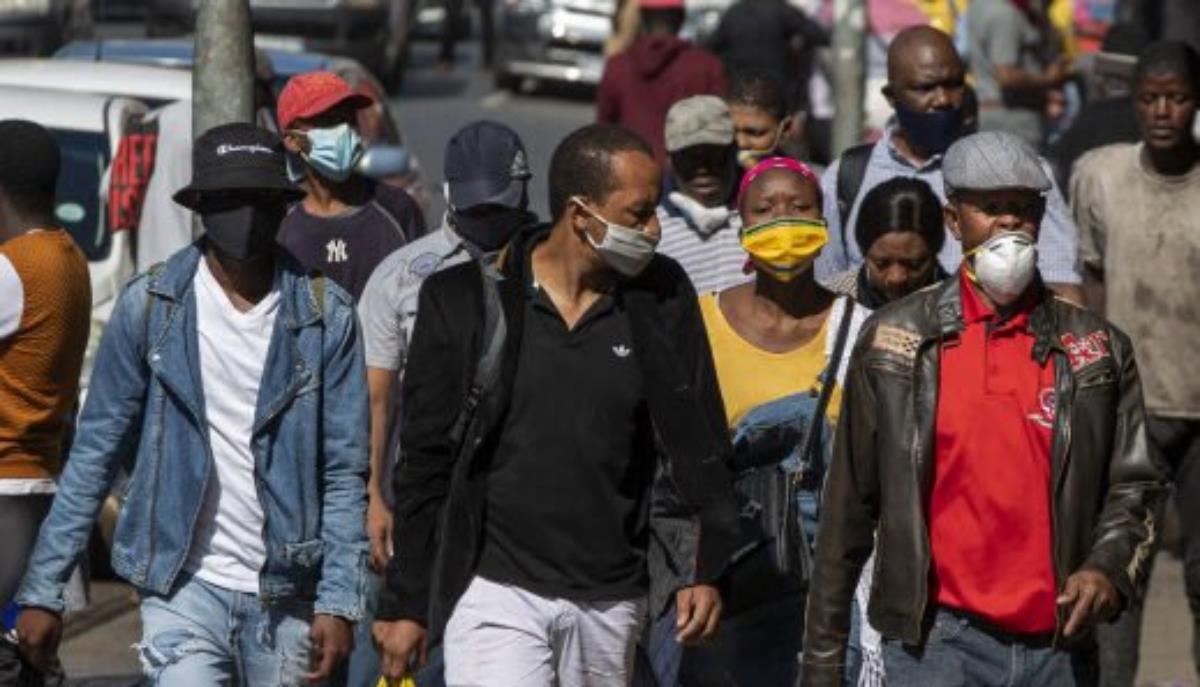Coronavirus in South Africa: Impact on the Economy and Future Consequences
Monday, 27 July 2020
The whole world is currently going through the Coronavirus crisis and suffering many consequences. Each country had to experience problems in the health system as well as in the economy for the past 6 months. Healthy measures were implemented to prevent the virus from spreading but those measures caused harsh economic consequences even for the strongest economies. Let’s discover some of the factors that contribute to the decline in the economy and the professionals that could help assess the crisis.

It is possible to say that the world has gone through many changes during the last 6 months. Coronavirus has changed life as we knew it and made us stay at home. We had to experience new ways of communication (even though video calls are nothing new, we were not used to it being the replacement of contact communication). The working world also experienced some changes as many had to work from home.
With the spread of Covid-19, many countries have suffered different kinds of struggles. From staggering numbers of sick people, which collapsed the health system, to seeing our loved ones die, wearing masks and not having contact with people outside our family circle.
The world was not ready for this catastrophe that took us by surprise. Let’s take a look at the consequences in South Africa.
How is the situation in South Africa?
South Africa’s economy was already chaotic when the virus appeared, but it caused it to worsen. The pandemic has made social and economic differences in South Africa more evident than ever before.
South Africans are worried, overwhelmed and frustrated as they look at the uncertain future that awaits them because the economy has been hitted hard by the pandemic and the consequences will be made clear in the future.
Who’s accountable for the crisis?
President Cyril Ramaphosa is being accused of flawed leadership and of not being capable of addressing the situation appropriately. However, not all South Africans put the blame on Ramaphosa. Others think that the economy was already in a precarious position before the virus appeared.
What factors caused the situation to worsen?
There are several factors that caused the economic crisis to increase. Some of them account for the pandemic and some others were already present before Covid-19 times:
- Lockdown has caused many small businesses to go through harsh times. From March to May, the lockdown was firmly established, which caused many businesses to shut down. As they were impeded from opening and they had to pay for the regular expenses anyway, many couldn’t manage to wait until lockdown eased.
- Experts consider that lockdown was the only way of preventing, or at least pushing the spread of the virus. Even though lockdown caused economic struggles, it was a necessary measure. Once it eased, masks became obligatory for everyone in the streets. However, it seems that South Africans are letting their guard down as they are not obeying safety measures. This will cause an upsurge in cases and health experts fear the worst.
- There is a staggering number of South African households that don’t have access to clean water — at least 54% — and this has not been caused by the pandemic, this is a well-known situation.
Safety measures were necessary to prevent the virus from spreading. However, Covid-19 has exposed long-established economic and social issues that cannot remain hidden anymore.
The South African Government has introduced fiscal and monetary stabilization measures, such as direct cash transfers to households and businesses throughout the country through a $26 billion (€23 billion) recovery package to minimize the economic impact of Covid-19.
However necessary, cash transfers are not enough to repair a long-established economic problem. A recovery package would entail much more than that because the country faces a worrying economic future.
What could be done to repair an ailing economy?
South Africa desperately needs innovative and efficacious measures that allow it to repair an ailing economy that has suffered for many years and which has been worsened by Covid-19.
Many believe South Africa needs to learn from its mistakes over the past 25 years. “Creating a capable state is a requisite for sustainable growth and development. Much lip service has been paid to this goal, but no real change has been effected over the past 20 years. Instead, the political leadership has promoted mediocrity within the machinery of the state" stated the chief executive of Pan-African Investment and Research Services, Iraj Abedian.
South Africans have to take the matter into their own hands. How?
The country has to prepare students to become professionals able to help put an end to the crisis and face the consequences that the pandemic will cause (it is well-known that the pandemic will have long-lasting consequences).
The future needs professionals able to solve this problem that has been present for a long time and will not disappear all of a sudden. It will entail a long process of healing and taking the necessary measures.
Which are the Professionals that can help address the problem?
The long-established economic recession, together with the Coronavirus consequences, will take a long hard process to be repaired. Every individual needs to be prepared for what the future awaits.
Professionals capable of addressing the future challenges will be in need to: repair the economy, solve long-established problems, and prepare South Africa to face a crisis like this one in the future.
These professionals include Economics, Politics, Public Administration, Business Administration, Accounting, among other professionals that can help the country to establish a solid ground in which to start growing in an appropriate and secure way.
Universities in South Africa are recognized worldwide for their quality and for providing students with the tools they need to face the challenges of their field.
Related Articles
Get Instant Information about the University















